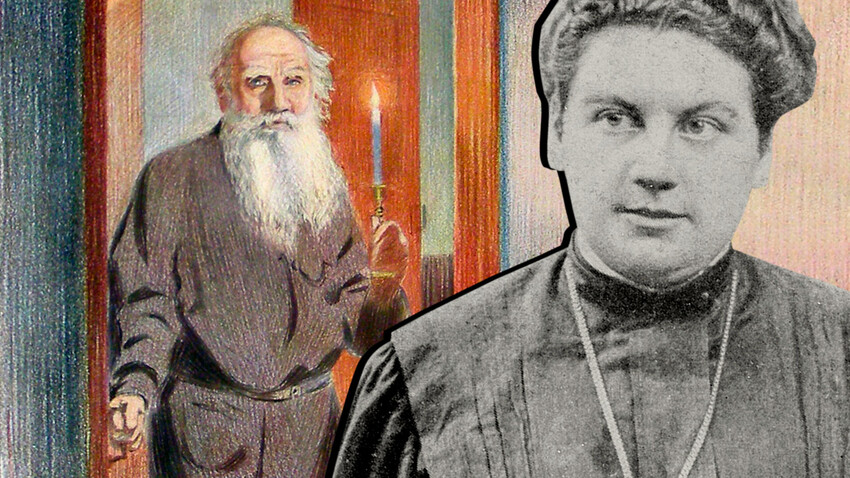
When Leo Tolstoy fled his home in Yasnaya Polyana prior to his death in 1910, only his youngest daughter Alexandra knew about his plans – she was the one her father trusted the most towards the end of his life. However, for the first years of her life, she was the least favorite daughter of the Tolstoy family.
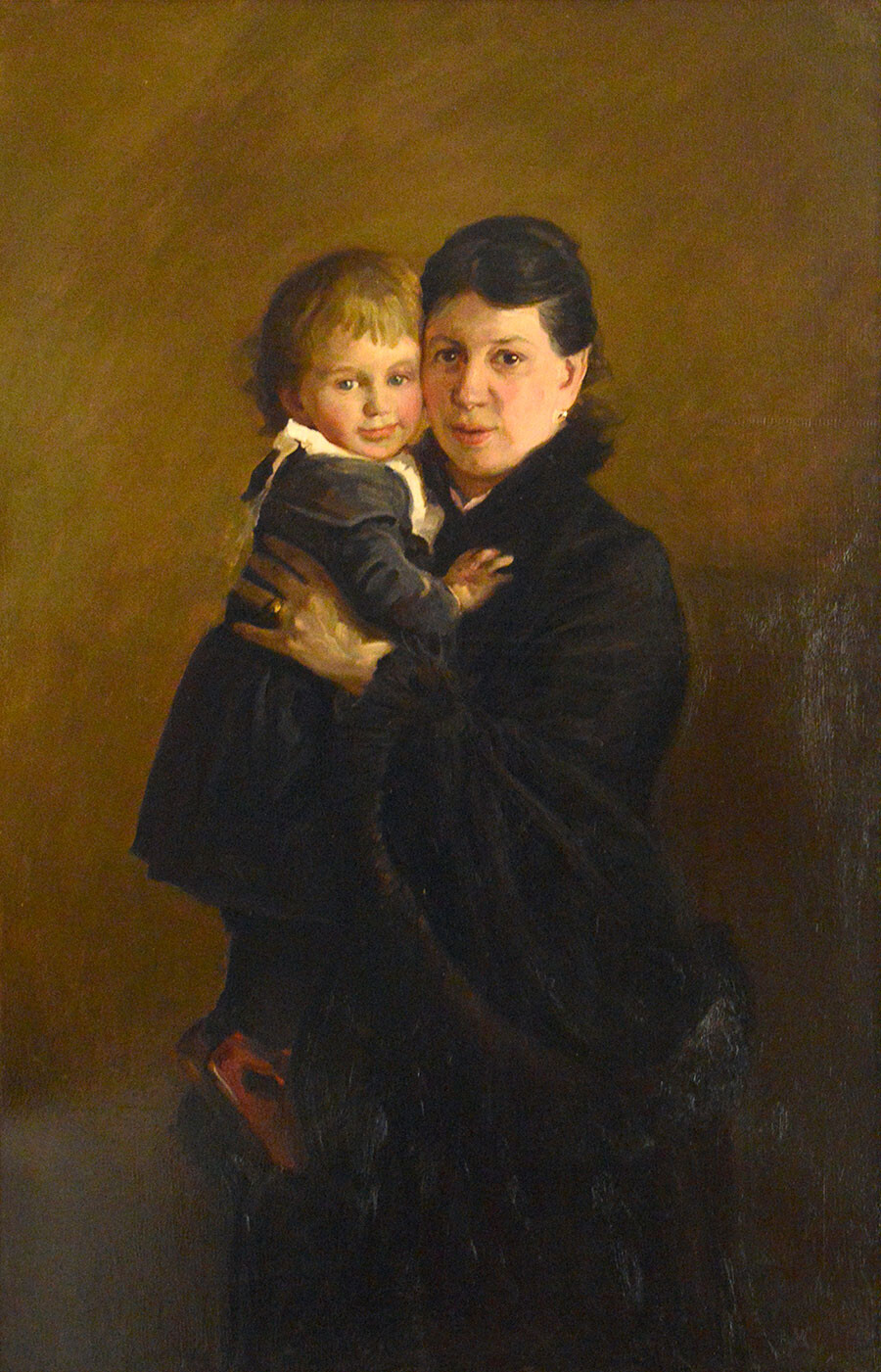
Portrait of countess Sophia Tolstaya (1844-1919), with daughter Alexandra. Found In The Collection Of State Museum Of Leo Tolstoy, Moscow.
Legion MediaWhen Sophia Tolstoy learned that she was pregnant with her 12th child, she screamed “Leo, I don’t want to give birth!” Desperate because of her husband’s frequent infidelity, the countess tried to stimulate a miscarriage; she took steaming hot baths and even jumped off a tall drawer, but all of this was to no avail. Alexandra was born anyway in 1884. Subsequently, however, Sophia disowned her daughter at an early age, entrusting her upbringing to the nanny and her elder daughter Tatiana.
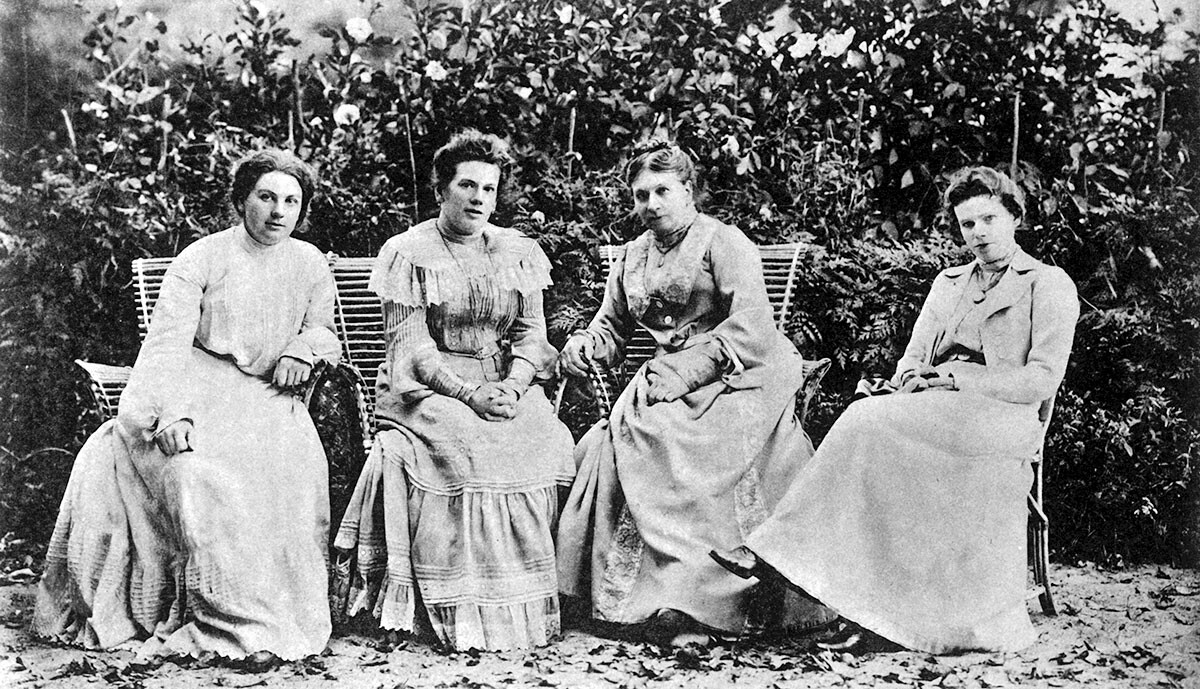
From left to right: Alexandra Tolstoy, Tatiana Tolstoy, Sophia Tolstoy (wife), Maria Tolstoy
Legion MediaAlexandra was properly schooled as all young aristocrats of that era. “I was taught English, German, French, music, and drawing from the age of ten,” she wrote in her book Tolstoy: A Life Of My Father. “I practiced every day from 9 a.m. to 12 p.m., and then there was time for breakfast and a walk, and then from two to six. In the early evening, after lunch, I prepared for my lessons. I was unable to absorb so much knowledge and I studied poorly. My main interests were horses, games and sports,” Alexandra wrote. In fact, her interests were just like those of her father!
As a teen, Alexandra detested girly things such as perfume and fashion accessories, choosing knives, drills and files as her toys. She had manly traits, and in fact, she did many traditional “masculine” things very well: in the video (above) you can see her driving a carriage like a pro, delivering presents to the village children.
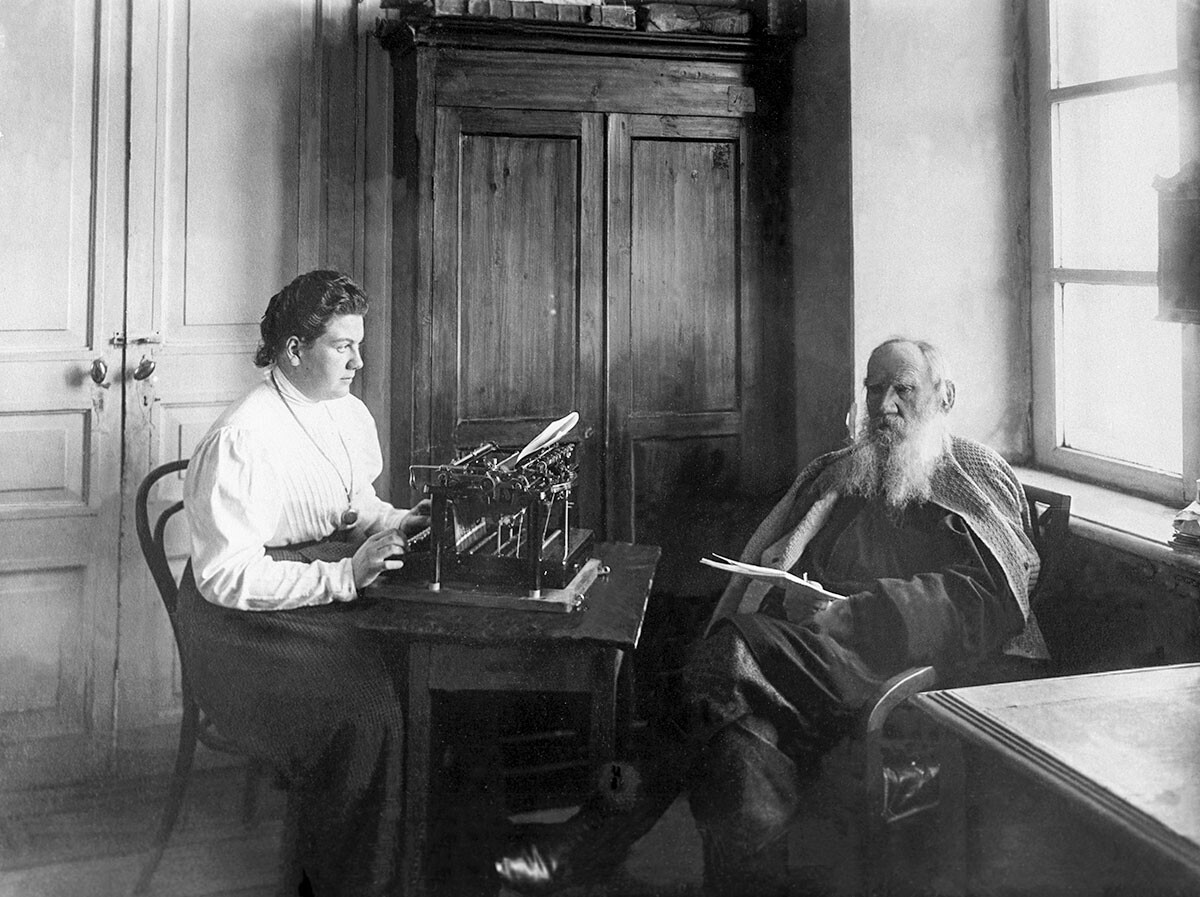
1909. Tula Gubernia, Russian Empire. Russian writer Leo Tolstoy and his daughter Alexandra work in the study at the Yasnaya Polyana estate. Tolstoy dictates a message for Alexandra to type. The photo was taken by Vladimir Chertkov, who was a friend, editor and publisher of Leo Tolstoy.
TASSWhen Alexandra turned 16, Leo suddenly became affectionate towards his daughter. He took her on long walks, and she also wrote down his diary following his dictation. When Tolstoy decided to leave Yasnaya Polyana just before his death, Alexandra was the only one who knew about his secret plan. In the ensuing family drama, Sasha was completely on her father's side. She accompanied him when he secretly left the estate at night and two days later went to the monastery in the village of Shamordino – there Tolstoy visited his sister Maria. Alexandra stayed with her father until the last minutes of his life. In accordance with Tolstoy’s last will and testament, after his death Alexandra received the rights to his literary legacy.
When World War I erupted, Alexandra volunteered to become a nurse. In a 1965 interview (link in Russian) she says she commanded a rescue squad “that had six doctors, nurses and a squad of soldiers” that transported the wounded to hospitals. “At first I was afraid of <seeing> surgery, but now I’m getting used to it,” she wrote to her sister. At the frontlines, it was not explosions, bullets and gory scenes that got to her the most, but rather, the lack of clean water. Brought up in one of the best homes in the country, she was obsessed with hygiene. Unfortunately, she eventually became sick with typhus.
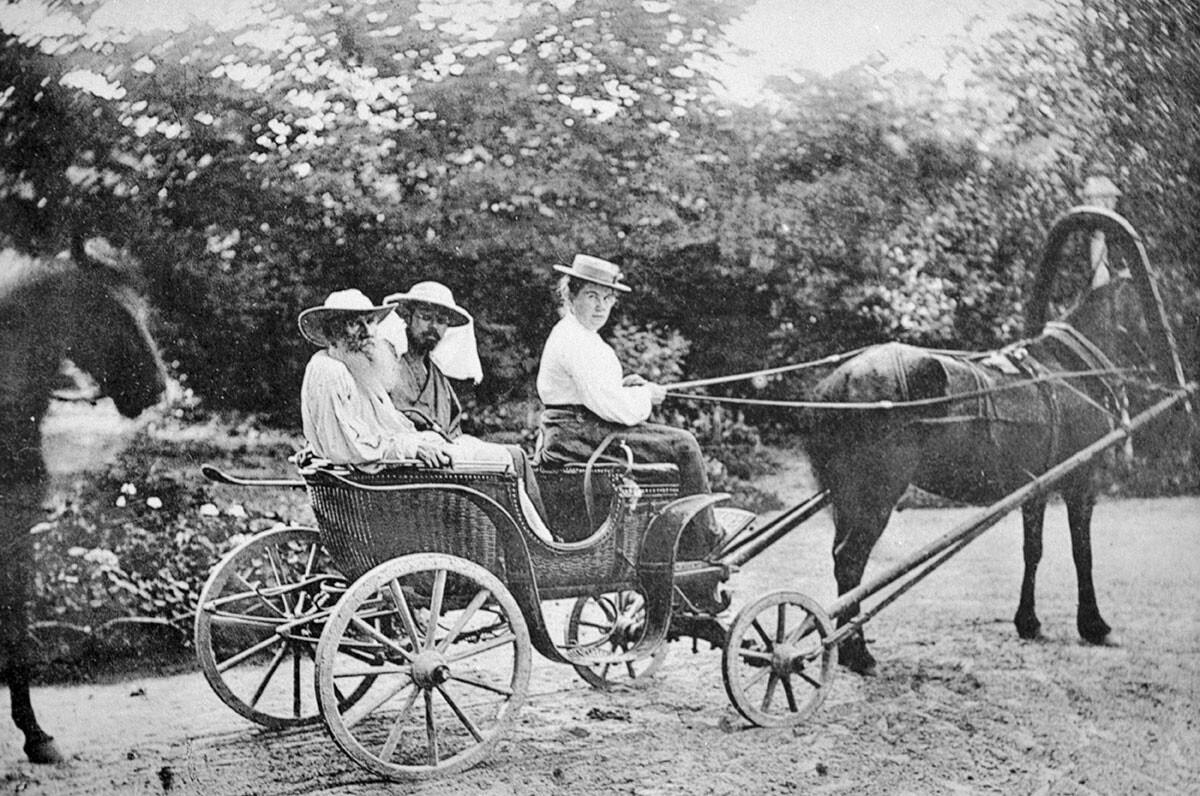
June 1, 1907, Yasnaya Polyana estate. Leo Tolstoy, Japanese journalist Tukutomi and Alexandra Tolstaya.
TASSAs a woman from a noble family, it was dangerous for Alexandra to be among the unruly soldiers who were increasingly radicalized by Bolshevik propaganda. The peasant soldiers detested the nobility. Eventually, Alexandra, who received two St. George’s medals for her bravery and hard work, had to leave the army. The soldiers, Alexandra says in this 1965 interview, “knew very little about Leo Tolstoy. Very few people had heard this name. Among those who knew, of course, the attitude was very respectful. But, you know, I saved myself not because I'm some kind of special person, but precisely because my father taught me to love the common people, to understand their psychology. And they felt this love. It was the only way I was saved.”
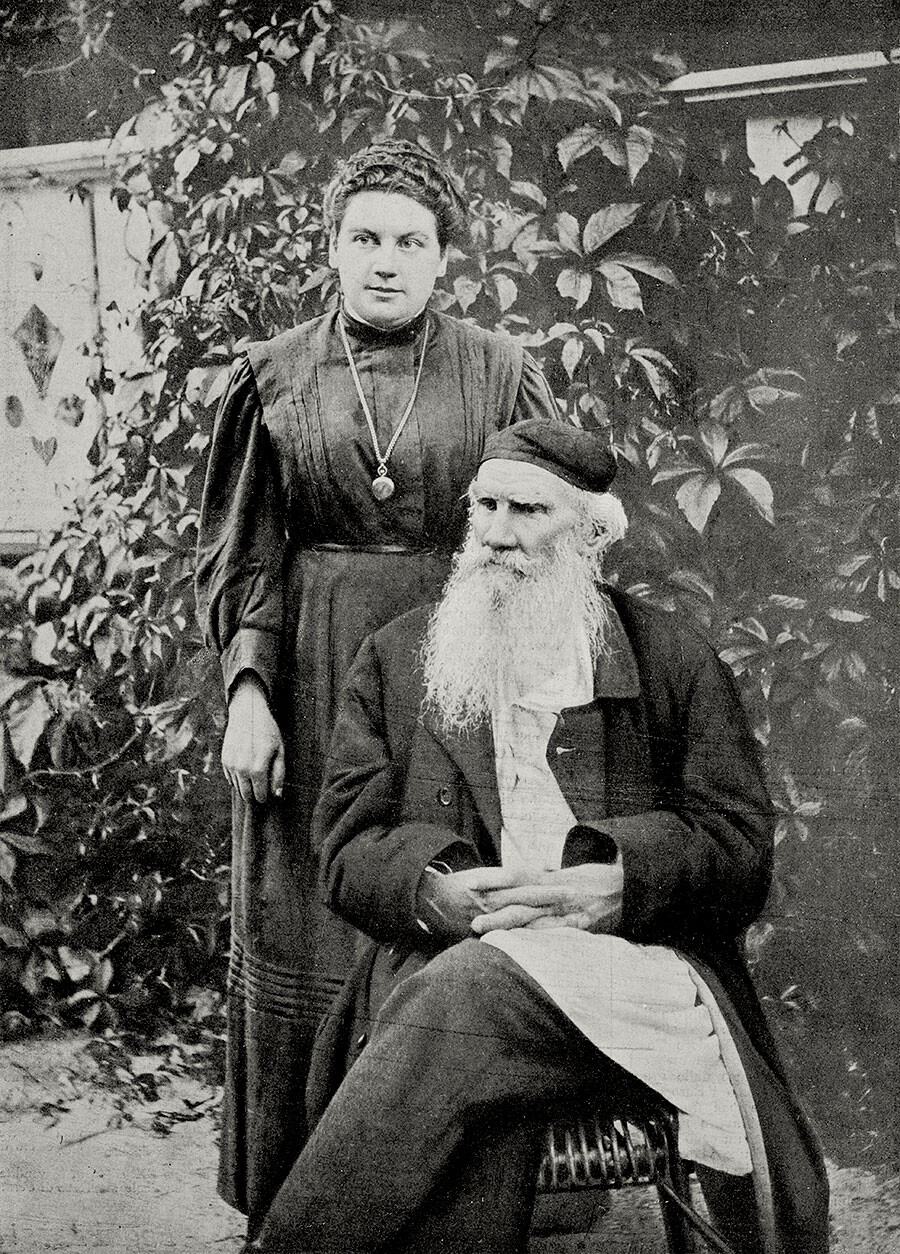
Leo Tolstoy with his daughter Alexandra, 1910
DEA/Getty ImagesAs a daughter of a Russian army officer and a nobleman, Alexandra’s life was in peril after the Bolshevik revolution brought down the imperial order. Only Anatoly Lunacharsky, the first People’s Commissar for Education, saved Alexandra by appointing her as the commissar of Yasnaya Polyana.
Over the course of the next three years, Alexandra opened a house museum in honor of her father that was dedicated to his literary work. She also opened a school for peasant children. But to accomplish this, she asked Stalin for help. “We found a former cowshed that we refurbished to house classes. Then we began to build the school house, on our own… Once, I saw Stalin in person, at the time when I asked for money to build a school... I saw nothing human in him, except for this Georgian politeness,” Alexandra confessed in the interview. “When he met me, he walked toward me from the opposite end of a huge room, and followed me all the way back when I left, set a chair for me, and was incredibly courteous and fulfilled all my requests. I can’t say anything more about him.”
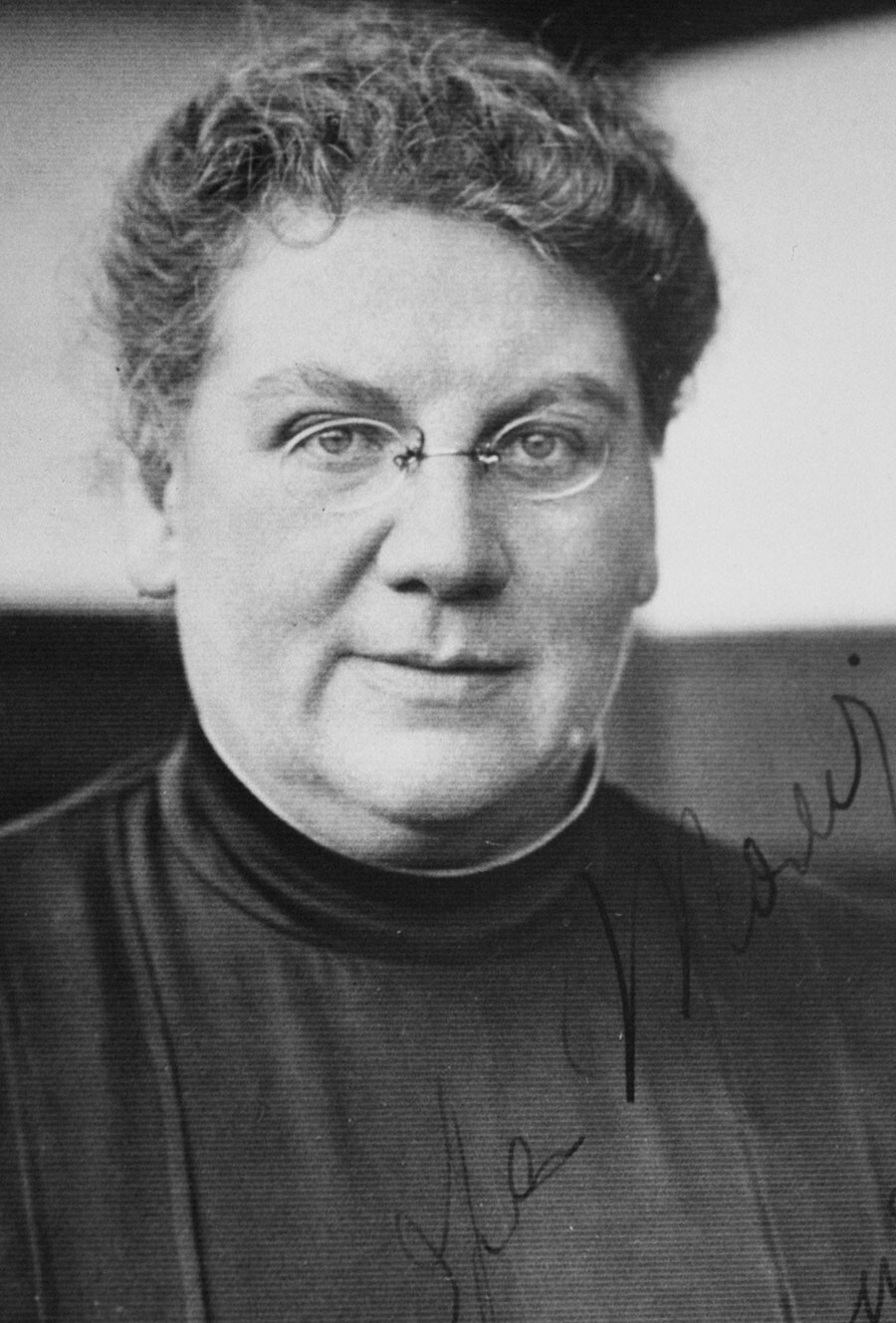
Alexandra Tolstoy as the first commissar of the Yasnaya Polyana museum estate
Sergei Metelitsa/TASSIn 1920, Alexandra was arrested on accusations that a year prior she allowed an anti-Bolshevik group to gather at her flat. She was sentenced to three years in a labor camp. Upon arriving there, she was disgusted at the horrible conditions and even wrote a letter to Lenin, pleading to execute her rather than keep her in such a filthy place. While Lenin didn’t answer her, six months later Alexandra was set free – probably thanks to the school she had opened for the peasants of Yasnaya Polyana. The authorities thought she could be of more use as a teacher and keeper of her father’s museum.
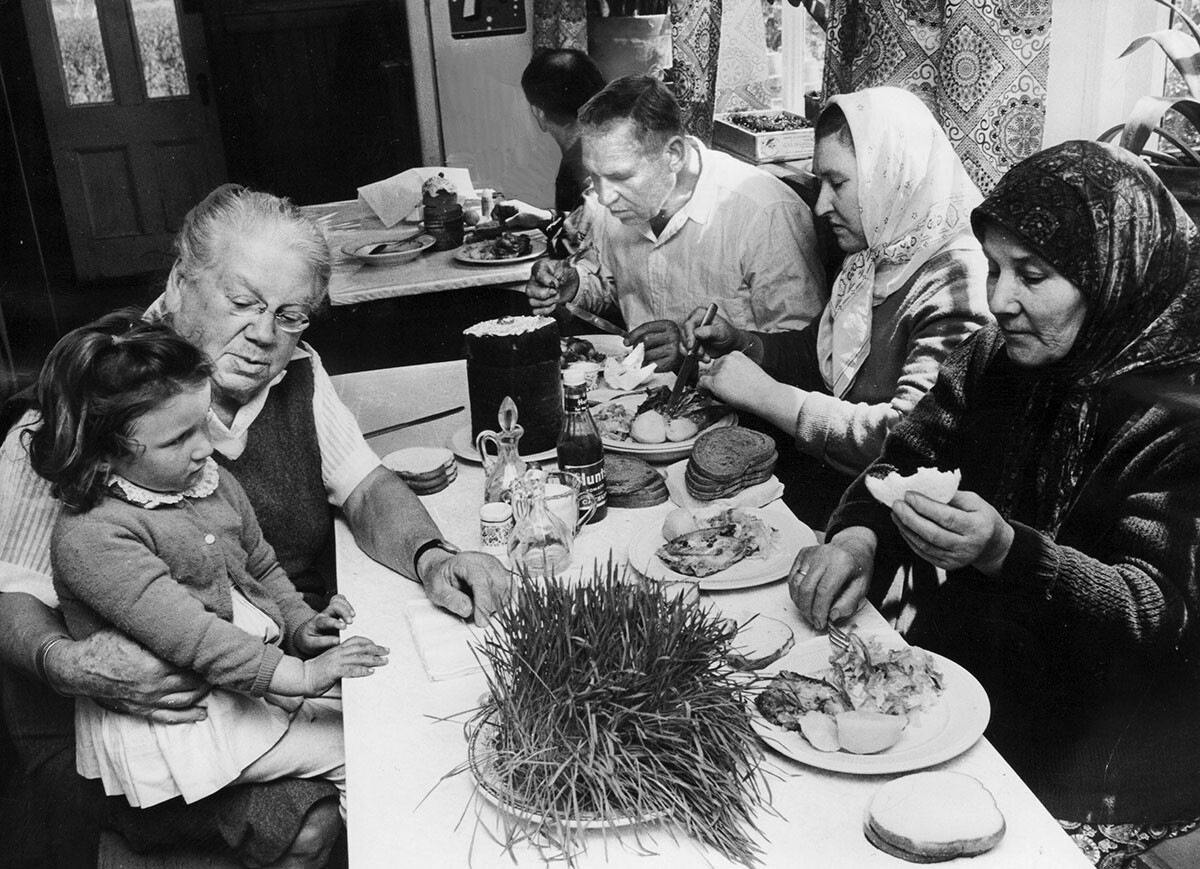
Valley Cottage, N.Y.: Countess Alexandra Tolstoy, daughter of Leo Tolstoy, holds 3-year-old Arischa Saglan on her lap while eating a meal with other Russians at Reed Farm in Valley Cottage, New York on May 4, 1964
Alan Raia/Newsday/Getty ImagesIn the Soviet era, formal education was deeply steeped in anti-religious propaganda. The devout Alexandra couldn’t stand it and even tried to advocate for religious education in Yasnaya Polyana. She became increasingly concerned that the situation in the Soviet Union would only become more oppressive, so Alexandra moved to Japan and then to the U.S. After she left the country, the Soviet authorities removed her images and name from all books and movies – in effect, they ‘canceled’ her. it was as if there never had been a woman by the name of Alexandra Tolstoy.
READ MORE: Leo Tolstoy's descendants
When she arrived in the U.S., Alexandra didn’t stop doing what she loved most – helping people. She bought a derelict farm in New York State, and learned to drive a truck and a tractor. Being a real Tolstoy, she was fiercely independent – when she needed money, she took loans and always returned them, never begging rich Americans for help. Fascinatingly, after just 10 years, in 1939, she organized the Tolstoy Foundation, whose mission was to help Russian refugees from Europe and the Soviet Union. In 1941, she became a naturalized U.S. citizen, and gave up her aristocratic title of Countess Tolstaya.
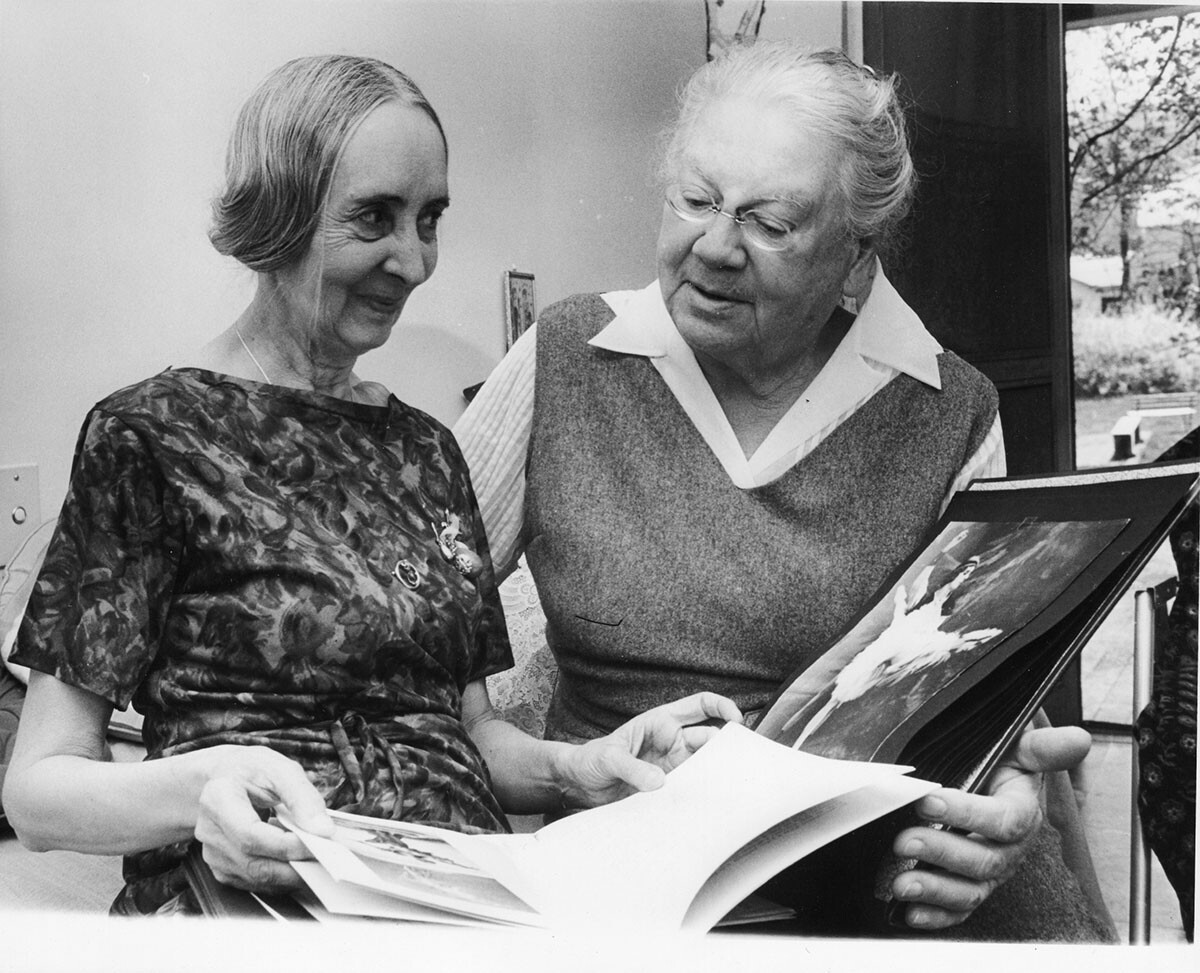
Valley Cottage, N.Y.: Former prima ballerina Olga Spessivtseva (left) looks at photos with Countess Alexandra Tolstoy (right), at Reed Farm in Valley Cottage, New York, on May 4, 1964.
Alan Raia/Newsday/Getty ImagesOnly in 1978, Alexandra, aged 94, received an invitation to visit the USSR on the occasion of the 150th anniversary of the birth of her father. Already very weak and bed-ridden, Alexandra sent a letter saying she couldn’t come because of ill health. “It’s hard for me, not being with my people on Russian soil… In my heart, I have never left Russia”.
She died in Valley Cottage, New York, on September 26, 1979, aged 95.
If using any of Russia Beyond's content, partly or in full, always provide an active hyperlink to the original material.
Subscribe
to our newsletter!
Get the week's best stories straight to your inbox